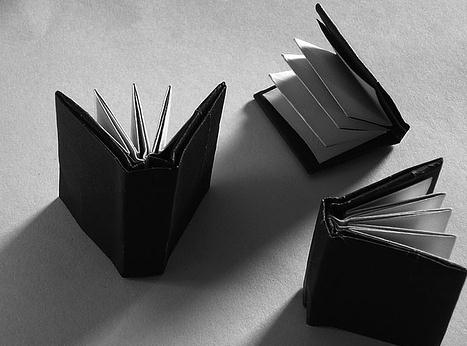沪教版五年级上英语语法总结3篇沪教版五年级上英语语法总结 (五)年英语课时教学案【第一单元第 1课时】 课题Unit1Myfuture课型New 教材简析及学情分析从这学期开始,对学生提出了新下面是小编为大家整理的沪教版五年级上英语语法总结3篇,供大家参考。

篇一:沪教版五年级上英语语法总结
五)年英语课时教学案【第 一 单元第1 课时】
课题 Unit 1 My future 课型 New
教材 简析 及 学情 分析 从这学期开始,对学生提出了新的要求,培养学生听说读写的技能,所以教师应该面向全体学生一学生的发展为宗旨,始终把学生的兴趣放在首位,引导学生端正学习态度,掌握良好的学习方法,培养学生良好的学习习惯。本课小学五年级英语上册是第一单元第一课时,本课的教学内容是我的将来。本科要求学生能用简但的单词和句型描述我的未来。五年级的学生有一定的英语基础,但学生的实际应用有限,直观的教学活动能激发他们的学习兴趣。游戏活动能有效的让学生在感知、体验、和参与中获取知识、形成语言运用能力。
学习 目标 1.掌握本课的核心单词和句型,并进行简单的应用。
2.
帮助学生运用核心句型 和用一般将来时描绘自己的未来的职业。
重点 难点 Aim1、2 教法学法活动化 教学 资源 录音机、幻灯片、卡片
教学过程:
Step1: Pre-task preparations
1
listen to an English song 2
Greeting 3
Have a dialouge
Step 2: While-task procedures
1 Show the work words: cook
pilot
driver
2 Listen to the tape and model
3 prastise in groups 4 Read
the
words
5 Write the words 6 Play a game 7 Show me the sentence 8 prictise Step 3 :Post-task activities 1
say your future jobs 2Homework 3Make a dialogue
板书设计: Unit 1 My future
Cook
pilot
taxi driver 课后反思:
( 五)年英语课时教学案【第 一 单元第
2 课时】
课题 Unit 1 My future 课型 New
教材 简析 及 学情 分析 本课小学五年级英语上册是第一单元第二课时,本课的教学内容是我的将来。本科要求学生能用简但的单词和句型描述我的未来。五年级的学生有一定的英语基础,但学生的实际应用有限,直观的教学活动能激发他们的学习兴趣。游戏活动能有效的让学生在感知、体验、和参与中获取知识、形成语言运用能力。
学习 目标 1.掌握本课的核心单词和句型,并进行简单的应用。
2.
帮助学生运用核心句型 和用一般将来时描绘自己的未来的职业。
What do you want to be? I want to be a pilot .
重点 难点 Aim1、2 教法学法情景交际法 教学 资源 录音机、幻灯片、卡片
教学过程:
Step1: Pre-task preparations 1
listen to an English song 2
Greeting 3
Have a dialouge Step 2: While-task procedures
1 Show the sentence:what do you want to be? I want to be a pilot.
2 Listen to the tape and model 3 prastise in groups 4 Read
the
sentence
5 Write
the
sentence 6 Play
a
game 7 Use the sentence 8 prictise freely Step 3 :Post-task activities 1
say your future jobs 2 Homework 3Make a dialouge
板书设计: Unit 1 My future
Cook
pilot
taxi driver What
do
you
want
to be ? I
want
to
be
a pilot . 课后反思:
( 五)年英语课时教学案【第 一 单元第
3 课时】
课题 Unit 1 My future 课型 New
教材 简析 及 学情 分析 本课小学五年级英语上册是第一单元第三课时,本课的教学内容是我的将来。本科要求学生能用简但的单词和句型描述我的未来。五年级的学生有一定的英语基础,但学生的实际应用有限,直观的教学活动能激发他们的学习兴趣。游戏活动能有效的让学生在感知、体验、和参与中获取知识、形成语言运用能力。
学习 目标 1.掌握本课的核心单词和句型,并进行简单的应用。
2.
帮助学生运用核心句型 和用一般将来时描绘自己的未来的职业。
What do you want to be? I want to be a pilot .
3. 帮助学生了解故事的大意,阅读抓住关键信息 ,巩固本单元所学的知识。
教 学重 难点 Aim1、2 教法学法情景交际法 教学 资源 录音机、幻灯片、卡片
教学过程:
Step1: Pre-task preparations 1
listen to an English song 2
Greeting 3
Have a dialouge
Step 2: While-task procedures 1 Show the story:Froggy,s new job
2 Listen to the tape and model 3 prastise in groups 4 Read
the
story
5 undrestand
the
sentence 6 Play
a
game 7 Use the sentence 8 ask and answer Step 3 :Post-task activities 1
say your future jobs 2 Homework 3Make a dialouge
板书设计: Unit 1 My future
Job
help lifeguard What
do
you
want
to be ? I
want
to
be
a pilot . 课后反思:
( 五)年英语课时教学案【第 二 单元第
1 课时】
课题 Unit 2 Going to school 课型 New
教材 简析 及 学情 分析 本课小学五年级英语上册是第二单元第一课时,本课的教学内容是去学校。本课要求学生能用简但的单词和句型描述自己和朋友怎样上学。五年级的学生有一定的英语基础,但学生的实际应用有限,直观的教学活动能激发他们的学习兴趣。游戏活动能有效的让学生在感知、体验、和参与中获取知识、形成语言运用能力。
学习 目标 1.掌握本课的核心单词和词组,并进行简单的应用。
2.
帮助学生运用核心句型 和用一般将来时描绘自己和朋友怎样上学。How do you come to school ? I come to school on foot.
重点 难点 Aim1、2 教法学法情景交际法 教学 资源 录音机、幻灯片、卡片
教学过程:
Step1: Pre-task preparations 1
listen to an English song 2
Greeting 3
Have a dialouge
Step 2: While-task procedure 1 Show the sentences: How do you come to school ?I come to school
on foot .
2 Listen to the tape and model 3 prastise in groups 4 Read
the
sentence
5 Use the sentence 6 Play a game 7 Show me the sentence 8 prictise Step 3 :Post-task activities 1
say your future jobs 2 Homework 3Make a dialouge
板书设计: Unit 2 Going
to school How do you come to school ? I
come
to
school
on foot . 课后反思:
( 五)年英语课时教学案【第 二 单元第
2 课时】
课题 Unit 2 Going to school 课型 New
教材 简析 及 学情 分析 本课小学五年级英语上册是第二单元第 2 课时,本课的教学内容是去学校。本课要求学生能用简但的单词和句型描述自己和朋友怎样上学。五年级的学生有一定的英语基础,但学生的实际应用有限,直观的教学活动能激发他们的学习兴趣。游戏活动能有效的让学生在感知、体验、和参与中获取知识、形成语言运用能力。
学习 目标 1.掌握本课的核心单词和词组,并进行简单的应用。
2.
帮助学生运用核心句型 和用一般将来时描绘自己和朋友怎样上学。How do you come to school ? I come to school on foot.
重点 难点 Aim1、2 教法学法情景交际法 教学 资源 录音机、幻灯片、卡片
教学过程:
Step1: Pre-task preparations
1
listen to an English song 2
Greeting 3
Have a dialouge
Step 2: While-task procedures 1 Show the sentences: How do you come to school ?I come to school
on foot .
2 Listen to the tape and mode 3 prastise in groups 4 Read
the
sentence
5 Use the sentence 6 Play a game 7 Show me the sentence 8 prictise Step 3 :Post-task activities 1
say your future jobs 2 Homework 3Make a dialouge
板书设计: Unit 2 Going
to school How do you come to school ? I
come
to
school
on foot . 课后反思:
( 五)年英语课时教学案【第 二 单元第
3 课时】
课题 Unit 2 Going to school 课型 New
教材 简析 及 学情 分析 本课小学五年级英语上册是第二单元第 3 课时,本课的教学内容是去学校。本课要求学生能用简但的单词和句型描述自己的学校。五年级的学生有一定的英语基础,但学生的实际应用有限,直观的教学活动能激发他们的学习兴趣。游戏活动能有效的让学生在感知、体验、和参与中获取知识、形成语言运用能力。
学习 目标 1.掌握本课的核心单词和句型,并进行简单的应用。
2.
帮助学生运用核心句型 和用一般将来时描绘自己怎样上学。
3. 帮助学生了解故事的大意,阅读抓住关键信息 ,巩固本单元所学的知识。
教 学重 难点 Aim1、2、3 教法学法情景交际法 教学 资源 录音机、幻灯片、卡片
教学过程:
Step1: Pre-task preparations 1
listen to an English song 2
Greeting 3
Have a dialouge Step 2: While-task procedures
1 Show the story:Ms Guo’s journey to work
2 Listen to the tape and model 3 prastise in groups 4 Read
the
story
5 undrestand
the
sentence 6 Play
a
game 7 Use the sentence 8 ask and answer Step 3 :Post-task activities 1
say your future jobs 2 Homework 3Make a dialouge
板书设计:
Unit 2 Going
to
school
Sp/sp/
wasp
crisp 课后反思:
( 五)年英语课时教学案【第 三单元第
1 课时】
课题 Unit 3 My birthday 课型 New
教材 简析 及 学情 分析 本课小学五年级英语上册是第三单元第一课时,本课的教学内容是我的生日。本课要求学生能用简但的单词和句型询问别人什么时候过生日。五年级的学生有一定的英语基础,但学生的实际应用有限,直观的教学活动能激发他们的学习兴趣。游戏活动能有效的让学生在感知、体验、和参与中获取知识、形成语言运用能力。
学习 目标 1.掌握本课的核心单词和句型,并进行简单的应用。
2.
帮助学生运用核心句型 和用一般将来时描术自己的生日时间以及询问别人什么时间过生日。
重点 难点 Aim1、2 教法学法活动化 教学 资源 录音机、幻灯片、卡片
教学过程:
Step1: Pre-task preparations
1
listen to an English song
2
Greeting 3
Have a dialouge Step 2: While-task procedures 1 Show the nurbers words: first
second
third
fourth ... 2 Listen to the tape and model 3 prastise in groups 4 Read
the
words
5 Write the words 6 Play a game 7 Show me the sentence 8 prictise Step 3 :Post-task activities 1
say
your
birthday 2 Homework 3Make a dialouge
板书设计: Unit 3 My
birthday
First
second
third
fourth课后反思:
( 五)年英语课时教学案【第 三单元第
2 课时】
课题 Unit 3 My birthday 课型 New
教材 简析 及 学情 分析 本课小学五年级英语上册是第一单元第二课时,本课的教学内容是我的将来。本科要求学生能用简但的单词和句型描述自己的生日时间,询问别人什么时间过生日。五年级的学生有一定的英语基础,但学生的实际应用有限,直观的教学活动能激发他们的学习兴趣。游戏活动能有效的让学生在感知、体验、和参与中获取知识、形成语言运用能力。
学习 目标 1.掌握本课的核心单词和句型,并进行简单的应用。
2.
帮助学生运用核心句型 和用一般将来时描绘自己的生日时间。
When’s
your
birthday ? It’s 26th
September .
重点 难点 Aim1、2 教法学法情景交际法 教学 资源 录音机、幻灯片、卡片
教学过程:
Step1: Pre-task preparations
1
listen to an English song 2
Greeting
3
Have a dialouge Step 2: While-task procedures 1 Show the sentence:When’s your birthday? It’s...
2 Listen to the tape and model 3 prastise in groups 4 Read
the
sentence
5 Use
the
sentence 6 Play
a
game 7 Use the sentence 8 prictise freely Step 3 :Post-task activities 1
say your future jobs 2 Homework 3Make a dialouge
板书设计: Unit 3 My
birthday
When ’ s
your
birthday ? It’s
26th
September . 课后反思:
( 五)年英语课时教学案【第 三单元第
3 课时】
课题 Unit 3 My birthday 课型 New
教材 简析 及 学情 分析 本课小学五年级英语上册是第三单元第 3 课时,本课的教学内容是我的生日。本科要求学生能用简但的单词和句型描述自己的生日时间。五年级的学生有一定的英语基础,但学生的实际应用有限,直观的教学活动能激发他们的学习兴趣。游戏活动能有效的让学生在感知、体验、和参与中获取知识、形成语言运用能力。
学习 目标 1.掌握本课的核心单词和句型,并进行简单的应用。
2.
帮助学生运用核心句型 和用一般将来时描绘自己的生日时间。
3. 帮助学生了解故事的大意,阅读抓住关键信息 ,巩固本单元所学的知识。
教 学重 难点 Aim1、2、3 教法学法情景交际法 教学 资源 录音机、幻灯片、卡片
教学过程:
Step1: Pre-task preparations 1
listen to an English song 2
Greeting 3
Have a dialouge Step 2: While-task procedures 1 Show...
篇二:沪教版五年级上英语语法总结
dule 4The natural world U nit 1
Fire Vocabulary: 禁止吸烟
禁止篝火
不要在火边玩耍
不要玩弄火柴 Sentences:
S1: For fire safety, what mustn"t we do?
S2: We mustn"t...
We mustn"t smoke.
We mustn"t play with matches.
We mustn"t play near fires.
We mustn"t start campfires
【考考你】
For __ safety, what mustn"t we do? A. fire B. life C. water 情态 动词 must 的用法 1. 基本情况 must 和其他情态动词一样,没有人称和数的变化,后接动词原形,表示某种语气和情态。如:
We must work hard at English.
我们应该努力学习英语。
2. 详细用法 a. 在肯定句中,must 表示“必须;应该”的意思,后者一般指在第一人称中。如:I must (我应该),we must (我们应该),其它人称一般表示“必须”的意思。如:
You must talk to them about their study. 你必须同他们谈谈关于他们学习的事。
b. 变成否定句,要在 must 之后加 not,常常缩写成 mustn’t,均表示“禁止;不可以;不许可;不允许”等意思。如:
Children mustn’t play on the road. It’s very dangerous. 孩子们不允许在路上玩耍,这样非常危险。
You mustn"t leave here.你不能离开这儿。
考考你:
1、我们一切都必须循序渐进地做。We __ do everything step by step. A. can
B.could C. might
D. must 2、禁止在这儿吸烟。
We__smoke here. A. can"t
B. mustn"t
Module 4
The natural world Unit 1
Wind Vocabulary: gently
adv. 温和地 strongly
adv. 强劲地,猛烈地
slowly
adv. 缓慢地
quickly
adv. 迅速地,很快地
Sentences:
It blows gently.
【练一练】
There is no wind. The children swim ___in the sea. A. gently
B. quickly
C. strongly Module 4
The natural world Unit 1
Water Vocabulary:
first
adv. 首先 next
adv. 其次,紧接着 then
adv. 然后 finally
adv. 最后 Sentences:
First / Next / Then / Finally,... 【练一练】
- What do we do ___? - First, we boil the water. A. finally B. First C. next D. then
Module 3
Places and activities 语法 知识(2 )how/which 以特殊疑问词开头,对陈述句中的某一部分提出疑问 / 进行发问的句子叫 特殊疑问句。
特殊疑问词一般要放在句首。常用的疑问词有 what / who / which / how 等这些词都以 wh 开头(包括 how)所以也叫做 wh-question. 特殊疑问句要求回答具体内容。不能用 yes 或 no 回答。
How 表示“怎么样”,是询问情况的疑问句。
which 表示“哪一个”,是询问选择的疑问词。
例句:
How do I get to the hospital? Walk along the street, then turn left and you can see the hospital. How do you go to school? I go to school by bike/ Which apple do you like, the red one or the green one? I like the red one. Which dress do you like? I like that one.
【考考你】
1、___do I get to the zoo, please? Walk along Green Road.Turn left at the first crossing. You can see an undergroud station. The zoo is next to the underground station. A. How
B. What C. When
D. Which 2、___do you want to buy, this one or that one? This one, please.
A. how
B.what C. when
D.which Module 3
Places and activities 语法知识(1 )should Should 作为情态动词,在本章表示应当做或发生的事。
Should+ 动词原形,表示义务。
Eg:
You should work harder. 你工作应该更努力。
我们在使用时要注意以下几点:
1. 用于表示“应该”或“不应该”的概念。常指长辈教导或责备晚辈。例如:
You should be here with clean hands. 你应该把手洗干净了再来。
2.用于提出意见劝导别人。例如:
You should go to the doctor if you feel ill. 如果感觉不舒服,你最好去看医生。
3. 用于表示可能性。should 的这一用法是考试中常常出现的考点之一。例如:
We should arrive by supper time. 我们在晚饭前就能到了。
She should be here any moment. 她随时都可能来。
【考考你】
I have a cold. What __ I do? You___ wear warm clothes. A. can, do B. do, should C. should, can D. should, should
Module 3
Places and activities Unit 3
Seeing the doctor Vocabulary:
fever
toothache
cough
cold
发烧,发热
牙疼
咳嗽
感冒
Sentences:
What should I do?
You should...
例句:
I have a cold. What should I do.
You should wear warm clothes.
【考考你】
I have a toothache. What ___ I do? A. can B. do C. must D. should
Module 3
Places and activities Unit 1
Around the city Vocabulary: hotel
旅馆,饭店
bank
银行 hospital
医院
bakery
面包店 museum
博物馆
cinema
电影院 Sentences:
How do I get to ..., please? Walk along...
EG: Excuse me. How do I get to City Cinema? Take the underground at Brown Street station and get off at Sea station. City cinema is on Park Road. 【练一练】
How do I get to the Park, please? Walk ___the street. Turn left ___the first crossing.Then you can see the zoo. The park is next to the zoo. A. along, at
B. along,不填 C. on,to
D. 不填,at Module 5
Getting to know you Unit3
Moving home 小朋友们,你喜欢你的家么?你知道你的家在什么位置和附近的东西南北方向吗?
一起来学习 Module 2 的第三课,然后你就都知道啦。
先来看看东西南北的表达方法吧。
Vocabulary( 单词): north:
北 south:
南 east:
东 west:
西
Sentences (句型): Why...? Because...
练一练:
Which room do you like? Why?
A: I like the living room. Because it"s so big! And it faces south. There"s a lot of sunshine.
B: I like the study. Because it"s quiet. I can read books there.
C: I like the garden. Because I can play in the garden all day! 作业:
1、___do you like your room? Because it"s very beautiful. A.How
B. Which
C. Why
D. 不填 Module 2
Me, family and friends Unit 2
Friends Vocabulary: same
相同的 different
不同的 both
(两个)都 all
(三个或以上)都,全部,所有 Sentences:
EG. I have a friend. Her name is Alice. Alice and I both go to Rainbow Primary School. We are in the same class. We both like sports. I like playing volleyball and Alice likes playing badminton.
We both like helping people. We sometimes help old people cross the street. We like each other and we like to be together. We are good friends.
作 业:
1、Lily and I both go to Rainbow Primary School. We are in the ___class. A. different
B. same Module 2
Me, family and friends Unit 1
Grandparents Vocabulary:
write a email: 写邮件
go shopping: 购物
play the chess: 下棋 Sentences:
How often...? once a week:
每周一次 twice a week:
每周两次 three times a week:
每周三次
four times a week:
每周四次 …… eg: I live with my grandparents. I often go shopping with them. I don"t live with my grandparents. I visit them twice a week. I often go to the park with them.
练一练:
1、I visit my grandparents___ month(每月两次). A. twice
B. twice a C. two a
D. two times 2、I often ___(去超市购物)
with my grandparents. A. go shop B. go shopping C. go shops D. goes shopping Module 1
Getting to know you Unit3
My future Vocabulary( 单词): worker
工人 doctor
医生
pilot
飞行员 farmer
农民 cook
厨师 shop assistant
售货员 Sentences (句型):
What do you want to be in the future? I want to be a / an...
练一练:
1、Linda wants to be a ____. She wants to give lessons to students. A.
cook B.
doctor C.
pilot D.
teacher 2、What __ you want to __? I want to be a cook. A. are, be
B. do, be C. do, do ----Module 1
Getting to know you Unit2
My way to school Vocabulary( 单词): taxi
出租车 underground
地铁 zebra crossing
斑马线,人行横道线 traffic lights
红绿灯 pavement
人行道 Sentences (句型):
Dialogue (对话): A:
How do you come to school, Alice? B:
I come to school on foot. I live near school. A:
When do you leave home? B:
I leave homeat a quarter to eight. A:
How do you come to school, Kitty?
B:
I come to school on foot too. Alice and I always walk to school together. A:
What about you, Peter? B:
I don"t live near school. I come to school by bus. I leave home at about seven thirty. A:
When do you arrive at school? B:
At about eight o"clock.
Miss Zhang:
Where do you cross the road?
Peter:
We across the road at traffic lights or at zebra crossing. Miss Zhang:
That"s right. How do you cross the road?
Danny:
We wait on the pavement for the green light.
Alice:
We look left first, then look right, and then cross the road. Miss Zhang:
That"s correct. Walk quickly, but don"t run on the road. 课本、报刊杂志中的成语、名言警句等俯首皆是, 但学生写作 文运用到文章中的甚少, 即使运用也很难做到恰如其分。为什么? 还是 没有彻底“ 记死” 的缘故。要解决这个问题, 方法很简单, 每天花 3-5 分钟 左右的时间记一条成语、一则名言警句即可。可以写在后黑板的“ 积 累专栏” 上每日一换, 可以在每天课前的 3 分钟让学生轮流讲解 解, 也可让学生个人搜集, 每天往笔记本上抄写, 教师定期检查等等。这样, 一年就可记 记 300 多条成语、300 多则名言警句, 日积月累, 终究会成 为一笔不小
的财富。这些成语典故“ 贮藏” 在学生脑中 中, 自然会出口成章, 写作时便会随心所欲地“ 提取” 出来, 使文章增色添辉。练一 练:
“教书先生”恐怕是市井百姓最为熟悉的一种称呼,从最初的门馆、私塾到晚清的学堂,“教书先生”那一行当怎么说也算是让国人景仰甚或敬畏的一种社会职业。只是更早的“先生”概念并非源于教书,最初出现的“先生”一词也并非有传授知识那般的含义。《孟子》中的“先生何为出此言也?”;《论语》中的“有酒食,先生馔”;《国策》中的“先生坐,何至于此?”等等,均指“先生”为父兄或有学问、有德行的长辈。其实《国策》中本身就有“先生长者,有德之称”的说法。可见“先生”之原意非真正的“教师”之意,倒是与当今“先生”的称呼更接近。看来,“先生”之本源含义在于礼貌和尊称,并非具学问者的专称。称“老师”为“先生”的记载,首见于《礼记?曲礼》,有“从于先生,不越礼而与人言”,其中之“先生”意为“年长、资深之传授知识者”,与教师、老师之意基本一致。1、I come to school ___foot. He comes to school __ bus. A. at, by
B. at, on C. on, at
D. on, by 2、___ do you arrive at school? At about eight o"clock. A. How
B. What C. When
D. Where
一般说来,“ 教师” 概念之形成经历了十分漫长的历史。杨士勋(唐初学 者 ,四门博士)《春秋谷梁传疏》曰:“ 师者教人以不及,故 谓师为师资也” 。这儿的“ 师资” ,其实就是先秦而后历代对教师的别称之一。《韩非子 》也有云:“ 今有不才之子…… 师长教之弗为变” 其“ 师长” 当 然也指教师。这儿的“ 师资” 和“ 师长” 可称为“ 教师...
篇三:沪教版五年级上英语语法总结
/p>秋季学习宝典
知识点总结篇
五年级(上)英语
1
11111`
1
Unit 1 What’s he like
知识点总结——四会单词 (会听、会说、会读、会写)
外貌特征:
old 老的,年纪大的
young 年轻的,岁数不大的
tall 高的
short 矮的
thin 瘦的
strong 强壮的
性格特点:
funny 滑稽的,可笑的
kind 体贴的,慈祥的,宽容的
strict 要求严格的,严厉的
polite 有礼貌的,客气的
shy 羞怯的,腼腆的,怕生的
helpful 有用的,愿意帮忙的
clever 聪明的,聪颖的
hard-working 工作努力的,辛勤的
active 积极的,活跃的
quiet 安静
学科类:
music 音乐
art 美术
science 科学
English 英语
maths/math 数学
Chinese 语文,中文
其它:
like 喜欢,像
sometimes 有时,间或
robot 机器人
speak 会说,会讲;用(语言)说话
知识点总结——三会句型 (会听、会说、会读)
1、—Who’s your art teacher?
谁是你的美术老师?
—Mr. Jones.
琼斯老师。
2、—Is he young?
他年轻吗?
—Yes, he is.
是的,他年轻。
—No, he isn’t.
不,他不年轻。
3、—What’s Wu Yifan like?
吴一帆怎样?
—He’s hard-working.
他很勤奋。
2
11111`
2
4、Ms Wang will be our new Chinese teacher.
5、He is very helpful at home.
6、Robin is short but strong.
7、He can speak Chinese and English.
8、He makes me finish my homework.
王老师会成为我们的新语文老师。
他在家很能干。
罗宾个子矮,但是身体强壮。
他会说中文和英语。
他让我写作业。
语法类
1、询问他人的外貌或性格:
—What’s he/she like?
—He/She is kind…
2、一般疑问句的问与答(1):
—Is he/she…?
—Yes, he/she is.
—No, he/she isn’t.
3、一般疑问句的问与答(2):
—Do you know…?
—Yes, I do.
—No, I don’t.
4、be 动词的三种形式 am, is, are 与人称代词连用的用法:
我用 am,你用 are,is 连着他她它。
单数用 is,复数用 are。
5、Ms., Miss, Mr., Mrs.的区别:
Ms.
[miz](缩略词)(用于女子的姓氏或姓名前,不指明婚否)女士;
Miss
[mis](用于未婚女子的姓氏或姓名前,以示礼貌)小姐,女士;
Mr.
(mister 的缩略词)(用于男子的姓氏或姓名前)先生;
Mrs.
[misiz](用于已婚女子的姓氏或姓名前)太太;夫人。
3
11111`
3
6、and 和 but 的区别:
and
but
“和,与”,表并列关系
“但是”,表转折关系
He is tall and thin.
He is short but strong.
他又高又瘦。
他个子矮,但是身体强壮。
重点作文
1. 介绍自己、朋友或老师等熟悉的人物,如:My …teacher/friend/….
思路导引
(1)开头:交代人物的身份
I have a/an…He/She is…
(2)中间:1)体貌
He/ She is tall/strong…
He/She has
…hair/eyes…
2)性格
He/She is strict/kind…
3)爱好
He/She likes playing ping-pong/…
或 He/She often reads books on the weekend.
(3)结尾:评价人物或抒发对人物的情感
I like him/her very much.
2. 范文:
(1)课本 P9 Read and write
(2)
My Chinese teacher
I have a new Chinese teacher. She is Ms. Chen. She is tall and thin. She has big eyes and long black hair. She is kind and funny. Sometimes she is strict, too. She is hard-working. She likes reading. Her class is so much fun. We all like her.
4
11111`
4
2
秋季学习宝典
知识点总结篇
五年级(上)英语
1
11111`
1
Unit 2 My week
知识点总结——四会单词 (会听、会说、会读、会写)
星期类:
Sunday (Sun.) 周日
Monday (Mon.) 周一
Tuesday (Tue./Tues.) 周二
Wednesday (Wed./Weds.) 周三
Thursday (Thur./Thurs.) 周四
Friday (Fri.) 周五
Saturday (Sat.) 周六
weekend 周末
动词搭配:
wash my clothes 洗衣服
watch TV 看电视
do homework 做作业
read books 看书
play football 踢足球
on the weekend 在周末
play sports/do sports 做体育运动
listen to music 听音乐
play ping-pong 打乒乓球
知识点总结——三会句型 (会听、会说、会读)
1.
—What do you have on Thursdays?
星期四你们上什么课?
—I have math, English and music.
我们上数学、英语和音乐课。
2.
—What do you do on Thursdays, Grandpa?
爷爷,星期四你要做什么?
—I have a cooking class with your grandma.
我和你奶奶去上烹饪课。
3.
—Do you often read books in this park?
你经常在这个公园看书吗?
—Yes, I do.
是的。
—No, I don’t.
不是。
4. Look at my picture.
看我的图片。
5.
You look tired.
你看起来很累。
6.
You should play sports every day.
你应该每天做运动。
2
11111`
2
语法类
1. 询问做什么事/活动:
—What do you do …?
—I often play ping-pong…
2. 询问星期几上什么课:
—What do you have on…?
—We have English class…
3. 一般疑问句的问与答:
—Do you often read books?
—Yes, I do.
—No, I don’t.
4. 介词:on/ in/ at 的用法:
on+具体某一天(年月日,星期)
at+具体时间点(…点钟)
in+大致时间(年月,早中晚)
5. play 的用法:
play + 球类、棋类、娱乐活动 play + the + 乐器
如:on Monday/Tuesday…
在星期一/在星期二……
如:at 12 o’clock
在十二点整
如:in 2014
在 2014 年
in the morning/afternoon/evening
在早上/在下午/在晚上
如:play football/ping-pong
如:play the pipa/ piano/ violin…
重点作文
1. 描写一周的生活,如:My week
思路导引
(1)开头:简单的自我介绍:My name’s…/ I’m…
(2)中间:
1)
介绍周一至周五的情况,可以着重介绍自己最喜欢的那一天:
I go to school from Monday to Friday. I like…because I have…
2)介绍自己周六、日的活动:I often watch TV/…on the weekend.
3
(3)结尾:This is my week. What about yours?
11111`
3
2. 范文:
My week
My name is Li Ming. I go to school from Monday to Friday. I like Tuesdays and Thursdays, because I have music and PE. I often do my homework and read books on Saturdays. I often play ping-pong on Sundays.
4
11111`
4
3
秋季学习宝典
知识点总结篇
五年级(上)英语
1
11111`
1
Unit 3 What would you like?
知识点总结——四会单词 (会听、会说、会读、会写)
食物:
ice cream
冰淇淋
hamburger
汉堡包
tea 茶
sandwich 三文治
salad 沙拉
food 食物
carrot
胡萝卜
onion
洋葱
bread
面包
chicken 鸡肉
milk 牛奶
beef noodles
牛肉面
fish sandwich 鱼肉三明治
tomato soup
西红柿汤
味道类:
delicious 美味的;可口的
hot 辣的;辛辣的
sweet 含糖的;甜的
fresh 新鲜的,刚摘的
其它:
thirsty 渴的;口渴的
hungry 饿的
favourite 特别喜爱的
drink 喝;饮
healthy 健康的
知识点总结——三会句型 (会听、会说、会读)
1.
—What would you like to eat?
你想吃什么?
—A sandwich, please.
请给我一个三明治。
2.
—What would you like to drink?
你想喝什么?
—I’d like some water.
我想喝点水。
3.
—What’s your favourite food?
你最喜欢吃什么食物?
—Noodles. They are delicious.
面条。面条很好吃。
4.
My/His /Her favourite food is fish.
我/他/她最喜欢的食物是鱼。
5.
I’m hungry/thirsty.
我饿/渴了。
6.
I don’t like beef but chicken is OK.
我不喜欢牛肉但是鸡肉也可以。
7.
Onions are my favourite vegetable.
洋葱是我最喜欢的蔬菜。
2
11111`
2
8.
I like vegetables but not carrots.
我喜欢吃蔬菜但不喜欢胡萝卜。
语法类
1. 询问想要吃/喝什么:
—What would you like to eat/drink?
—I’d like…
2. 询问最喜欢的事物:
—What’s your favourite food/vegetable/…?
—My favourite food/…is…/I like…
3. 名词复数的规则变化:
(1)直接加 s;
(2)以 s, x, sh, ch 结尾的,加 es,
如,buses, boxes, sandwiches
(3)以 o 结尾,有生命的加 es,
如,potatoes, tomatoes
无生命的加 s,
如,photos, pianos, zoos
(4)以辅音加 y 结尾,改 y 为 i 再加 es,
如,families, babies
以元音加 y 结尾,直接加 s,
如,boys, days
(5)以 f 或 fe 结尾,改 f 为 v 再加 es,
如,knife-knives
小刀
leaf-leaves
树叶
4. some+可数/不可数名词例:some apples(可数)
some water/rice/juice/bread/…(不可数)
5. 不可数名词(词后不可以加-s/es,所接动词用单数 is / V-s/es)
液体 water
milk
tea
orange
coke
juice
气体 air
食物 food
rice
bread
fruit
肉类 meat
fish
beef
chicken
物质 work
paper
time
music
weather
snowmoney
3
11111`
3
重点作文
1. 描述自己和家人最喜爱的食物思路导引
(1)开头:简单介绍自己的家庭成员:There are…people in my family. They are…
( 2 )中间:分别介绍每个家庭成员最喜爱的食物时什么:
…favourite food is …/ … is …
favourite./…like(s)…best.
(3)结尾:穿插说明喜欢的原因:It’s/They’re…
2. 范文:
(1)课本 P29 Read and write
( 2 )There are four people in my family. They are my parents, my brother and me. My mother
likes salad best. It’s fresh. Beef is my father’s favourite. He thinks (认为)
it’s delicious. My brother likes ice cream. It’s sweet. My favourite food is fish. It’s very healthy.
4
11111`
4
4
秋季学习宝典
知识点总结篇
五年级(上)英语
1
11111`
1
Unit 4 What can you do?
知识点总结——四会单词 (会听、会说、会读、会写)
dance 跳舞
swim 游泳
cook 烹饪,烹调
sing English songs
唱英文歌曲
play the pipa 弹琵琶
do kung fu 打功夫
draw cartoons 画漫画
play ping-pong 打兵乓球
draw pictures 画画
clean the classroom 打扫课室
知识点总结——三会句型 (会听、会说、会读)
1. We’ll have an English party next Tuesday!
我们下周二将举行英语派对。
2.
—What can you do for the party?
你能为派对做些什么呢?
—I can sing English songs.
我能唱英文歌。
3. How/What about you?
你呢?
4.
Can you do any kung fu?
你会打功夫吗?
—Yes, I can.
是的,我会。
—No, I can’t.
不,我不会。
5.
No problem. I can help you.
没问题。我会帮你。
6.
I can play ping-pong, but I can’t swim.
我会打乒乓球,但我不会游泳。
7.
Please send me an email at xxx@friend.cn.
请给我发邮件。
语法类
1. 询问对方会做什么事情:
—What can you do?
—I can play the pipa.
2. can 句型的否定句:
I can’t play the pipa.
3. can 句型的一般疑问句的问与答:
—Can you do any kung fu?
—Yes, I can./No, I can‘t.
2
11111`
2
4. play 的用法:
例 play the pipa /piano…
play + the +
乐器,
play +
球类、棋类、娱乐活动,
例 play basketball/football/ping-pong…
5. some 与 any 的异同:
相同之处:都有“一些”的含义;
不同之处:some+可数名词复数/不可数名词(用于肯定句中)
例:I can do some kung fu. 我会打功夫。
6. any 的用法:
any+可数名词复数/不可数名词(用于否定句或疑问句中)
例:I can’t do any kung fu.
我不会打功夫。
Can you do any kung fu?
你会打功夫吗?
1)any 还可以用于肯定句,作“任何的”解。
例:Any student can answer this question.
任何学生都能回答这个问题。
2)在表示建议,请求的疑问句中,或期望得到肯定回答时,用 some 而不用 any。
例:Would you like some coffee?
你想来点咖啡吗?
重点作文
1. 描写自己或家庭成员会做的事情,如:I’m helpful / Super family;
思路导引
(1)开头:介...
推荐访问:沪教版五年级上英语语法总结 五年级 英语语法 教版






